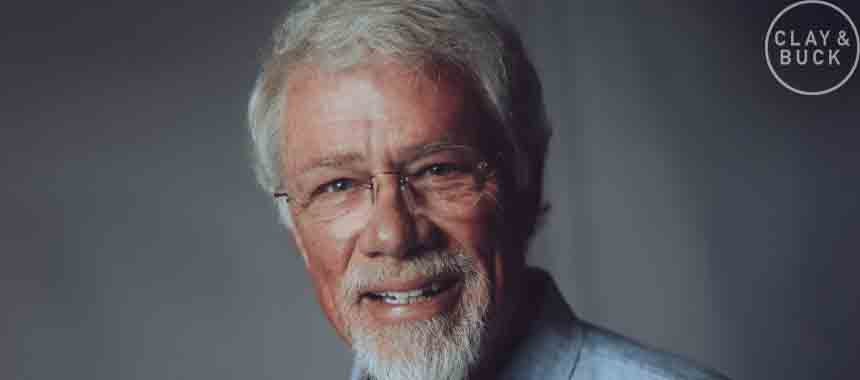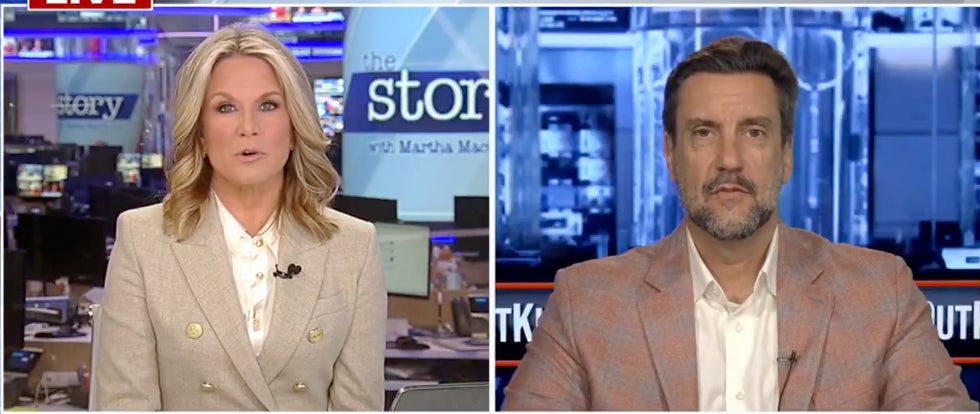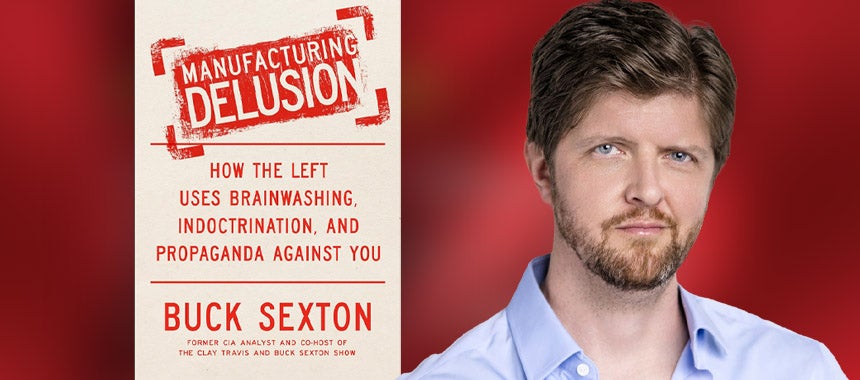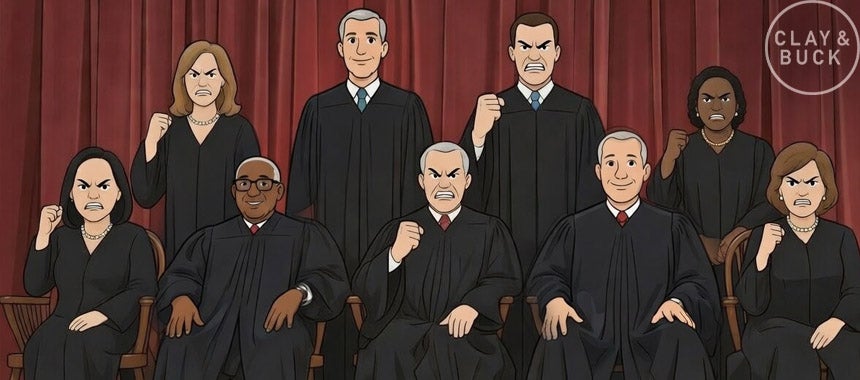The Bidas Touch: Highest Inflation Rate in 40 Years
10 Feb 2022
CLAY: Just earlier this morning, news comes down that the inflation rate is continuing to rise in the United States. We are up to 7.5%. Every single time the inflation rate comes in above expectations, economists are quoted as being surprised. I’m far from an expert on the economic conditions, but if your models continue to be overrun by increasing inflation, maybe you should stop being surprised by the things that are actually taking place.
All the way back in 1982, 40 years ago, was last time inflation was this high. I actually pulled up the article here on what was going on in 1982. David Letterman made his debut on NBC basically this same time 40 years ago, the House judiciary GOP said… Diet Coke was just introduced. The New York Islanders were actually good at hockey.
That feels like just a low blow to people who are living out on Long Island. It just… I mean, out of nowhere you’re starting off your day, we got some Islander fans. I apologize for that. And CD players made their debut. This is pretty crazy, Buck, and I wanted to listen to the reaction on Fox Business Network Stuart Varney as this news comes down and he talks about the fact that instead of getting better, inflation continues to get worse.
VARNEY: There is only one money story, and that is inflation. So here’s what we have. In the last year, consumer prices have gone up 7.5%. Inflation is running hot. This is another report showing the worst inflation in over 40 years, and this is the inflation which everyone feels. Food prices, housing, transportation, all up sharply. Question: Who gets blame for this? It looks like inflation is actually speeding up, not tapering off by any means. It’s getting worse: 7% in December, 5.5% in January. Not good.
CLAY: So, Buck, I mean, this is a mess. I know we’ve talked about covid and the dangers that it could be as a drag for Biden as we go into 2022, but the combination of covid and inflation. Inflation’s not going to be gone. I feel very confident about that as we get into election season. This is pretty crippling, right?
BUCK: The problems that we keep seeing that are severe and inescapable at this point — the border issue, covid restrictions, all these things — Clay, we’re seeing the downside. Obviously, inflation as well. But we have all these different areas where no one can say this isn’t going poorly.
CLAY: Yes.

BUCK: Crime in cities. No one can say this isn’t going poorly. The issue we’re running up against is that the only way to deal with these problems is to do the opposite — or go in the opposite direction of — what Democrat policy has been for the first year of the Biden administration, and even stretching back into what they’ve been pushing for for years into the Trump administration.
So we’re in this fix, right, because if we look at the inflation issue, why do we have it? Everybody who has even the most basic understanding of economics will say, “Well, we spent trillions of dollars in addition to the trillions of dollars the government is already spending after a period of never-before-done quantitative easing and monetary policy and a debt that’s approaching now $30 trillion. What was the debt in 1982? We’re doing 1982. What was our national debt in 1982? Someone will tell me in a second.
CLAY: I bet over-under. Let’s set over-under. What do you think the national debt was in 1982?
BUCK: I’ve walked in front of the bus on this one. A couple trillion?
CLAY: I will set a number. I was gonna say three.
BUCK: Yeah, two or three.
CLAY: I was gonna say $3 trillion — $2.5, $3 trillion — would be my guess. By the way, the entire history of the United States, Buck, we had built up a deficit, I think, of around $5 trillion by the end of the nineties. And in the last 20 years, we have added $25 trillion to the national debt. I believe that’s accurate.
BUCK: So now we look at this problem. People… Everyone, all of our people listening across the country know that their wage increase — there’s been some, you know, modest wage increase that’s occurred in the last year or so, depending on the period of time. But that has been completely outstripped by inflation. So you’re losing… You’re putting money in a bank account every month, if you’re able to save.
Which, as we know, a lot of people — over half of Americans — live paycheck to paycheck. But if you’re able to save whatever you’re saving, you’re losing about 7% annually, and you’re wondering, “Okay, well, what can we do about this?” Clay, the Biden administration’s entire economic and domestic policy agenda at a time of the highest inflation since I was born, right? (chuckles)
You’re only a couple of years ahead of me is to spend a whole lot more money. I mean, you can’t… It’s like they’re saying at a forest fire and they’re saying, “You know, we got a fever and the only prescription is more gasoline!” We are out of their minds. Joe Biden is going on television telling everybody if we spend the Build Back Better trillions — and you look at the real estimates, there’s so much of this is “sunset.”
But it’s not going to be sunset, so the spending will be higher than they say. They say it will pay for itself. That is delusional. It’ll cost trillions of additional dollars. The one thing that they would need to do, Clay, is of course stop the restrictions in the blue states which are holding back those economies and economic productivity.
And to stop spending money and essentially running an experiment in universal basic income which is what they’ve done during covid. They use it as an excuse to set up universal basic income — i.e., paying people to stay home — and they’re doing the exact wrong things. Because otherwise what are they gonna say? We were right — and they won’t say that. They won’t accept that.
CLAY: And the one saving grace might be that Joe Manchin actually seems to care about inflation. He’s one of the few Democrats who seems to have a functional brain as it pertains to the overall hit. I think what you said is astute. There’s a lot of focus in the Biden administration on wage growth. Wage growth is not rising to the level of inflation.
So in terms of real income in pockets, everyone out there who is working, even if their wages are going up, I think the average wages are going up 5.8% or 5.7% right now are the most recent estimates I’ve seen. That means you’re losing. Even if you’re gaining, you’re losing ground relative to the buying power when inflation is up to 7.5%, and it appears Build Back Better is dead.

Did you see Manchin put out a statement effectively saying, “We have to figure out how to get control of inflation.” And, Buck, at this point in time, I just wonder, when are we gonna top out, right? Because the economists keep saying, “Oh, it’s gonna ease! It’s gonna ease, gonna ease.” All right but we’re now into February. I don’t get the sense that it’s easing.
I don’t get the sense that the supply chain is getting that much better. If you walk into a grocery store, there are a lot of empty shelves right now, higher than most of us have seen at any point in our lives other than the covid rush. If you go to fill up your car, you stand there and look at the price of gas; it is staggering how much it costs to fill up a car right now.
No matter where you are in the country. And when is that gonna get better? God forbid, you’re trying to buy a car. Have you seen how much used car prices are up? We’re talking about just fundamentally broken aspects of our economy, and I don’t know how we fix it, and certainly the Biden administration has no answers here.
BUCK: Where did all the money go? People wonder, $1.9 trillion spent by Democrats at the beginning of the Biden administration. Yeah, there are answers to this, went to pay people the extended unemployment benefits, it went to al kinds of purchases that were supposed to get states ready for reopen. But then of course they kept withholding the reopen.
They are spending money in ways at the government level, that are making everyone listening to this less well off, costing them hundreds of dollars a month on average just in terms of what’s being eaten up in the economy by these bad policies. But this is the issue. The Democrats can’t accept that they’re just obviously wrong, but they also know that these issues — gas prices, inflation, cost of groceries.
And, by the way, the way we gauge inflation isn’t even really that good. The basket of goods, it’s higher than it really seems to be for most people when you look at what the actual cost of living is for folks now. But, Clay, this does hurt Democrats. So they know they’ve got a problem because politically people are annoyed by this, which is why the average — the Real Clear Politics average — of polling for the Biden administration approval is under 40%.
I believe the average being under 40%, this is the first time. So things are looking bad for them already. On all these issues we keep coming back to, how can they make things better with the economy? Well, for one thing, they have to regulate less, have to let people get back to work, have to stop with all the stupid pandemic restrictions, stop spending money they don’t have, stop running up the national debt. Those are all the things that they refuse to do, right? (chuckling) This is the problem. This is why we’re at an impasse.
CLAY: Buck, here’s the answer, by the way, for 1982. Ali tracked it down. $1 trillion was our national debt in 1982. So think about this. The entire history of our country from, let’s say, you know, 1783 when we won independence from the British all the way up to 1982 — 200 years — we had run up a national debt of $1 trillion in that first 200 years. In the last 40 years, we have added $29 trillion to our national debt.
Because for people out there — I know a lot of you know — we’re at $30 trillion national debt right now. And guess, by the way, who owns a huge percentage of our national debt: China. So you are talking about in two generations, $29 trillion in spending. I don’t know… I understand there’s people out there who say Modern Monetary Theory, that this doesn’t matter and as long as you keep money, you’re gonna be fine, but, man, this is…
 To me it’s incredibly sobering. I know there’s a lot of people out there who are crypto people. Buck, I don’t know if you ever done anything in crypto, but I mean one of the big driving forces behind crypto is that national currencies are in for really substantial issues going forward particularly the dollar. I mean, God, that’s crazy to think about, 1982: $1 trillion. We’ve added $29 trillion in debt in the last 40 years.
To me it’s incredibly sobering. I know there’s a lot of people out there who are crypto people. Buck, I don’t know if you ever done anything in crypto, but I mean one of the big driving forces behind crypto is that national currencies are in for really substantial issues going forward particularly the dollar. I mean, God, that’s crazy to think about, 1982: $1 trillion. We’ve added $29 trillion in debt in the last 40 years.
BUCK: I sit here and tell everybody if you look at the history — and it’s a pretty long one. The history of fiat currency is not something that will help you sleep well at night in terms of what it always devolves into and where it goes. This is not good, folks, and the Democrats… They like paying people off with the public’s money, convincing them it’s someone else’s money and keeping themselves in power with it. This is how you destroy an economy — and with that, actually, you can destroy a whole country or civilization.
CLAY: It’s scary, Buck, to think about because the conversation almost has disappeared. There used to be people who would say, “Hey, we gotta make sure we worry about the deficit.” Even remember it wasn’t that long ago, Bill Clinton balanced the budget. And you know ’cause you live in New York City it used to be an iconic story all the time, your national debt… Do they still have the billboard that counts the national debt like on a day-to-day, hour by hour New York City?
BUCK: The debt clock? Yeah.
CLAY: Yeah, the debt clock, and they actually had to take it down because from ’96 to ’98, we started running surpluses and then everything has fallen apart. It really is scary and there’s almost no discussion of it anymore.
BUCK: It turned into an arm’s race really between both Republicans and Democrats for who could spend money in ways — and this really, if you go back to the Bush administration, who could spend money in ways — that would win them the most votes in the next election. Once that deevolution happens where both sides are just saying, “We’re gonna shovel…”
What really is going on also — and a lot of folks know this and it’s a hard thing for some people to hear — is intergenerational theft.
CLAY: Yes.
 BUCK: I mean, you see the saddling of future generations with debt obligations for our currency and for our national financial obligations that is just gonna hurt your kids, your grandkids, Clay.
BUCK: I mean, you see the saddling of future generations with debt obligations for our currency and for our national financial obligations that is just gonna hurt your kids, your grandkids, Clay.
CLAY: Yeah.
BUCK: That’s where we’re headed.
CLAY: It’s true.
BUCK: It’s frustrating to see inspect, and I think the only way that you start to turn the ship in the other direction is that annihilation in the midterms and then, of course, a different president as soon as we can possibly get one. But even that, you gotta keep the heat on Republicans for this. I am not delusional about Republicans being the fiscal conservatives that they pretend to be.
CLAY: We added 29 trillion additional dollars in debt in the last 40 years, Buck. That’s just crazy. How do you end it, right?
BUCK: Yeah.
CLAY: And right now, we’re talking about still low interest rates. But what happens if we ever end up in an era where interest rates take off again like they did in Jimmy Carter’s era, like they were in the early years of the Reagan era? People forget. There’s this idea — and it’s magical thinking. Every couple of generations we forget that things like this can happen because people age out of it. It’s insane.
Recent Stories

Soren Aldaco: A Detransitioner's Story
One of our most powerful interviews in recent memory. Don't miss it.

Jeff Hays, Director of MAHA Uncensored, a Hard Look at the Business of American Medicine
An inside look at what drives the American medical system.

Clay Praises Alysa Liu's Gold Medal for the USA
Miss Clay on The Story with Martha MacCallum? Watch it here.







